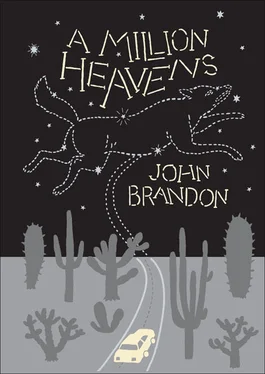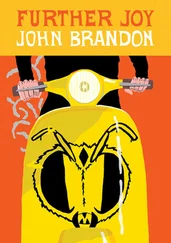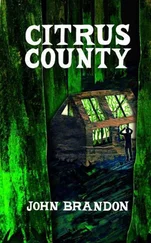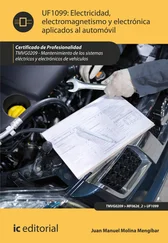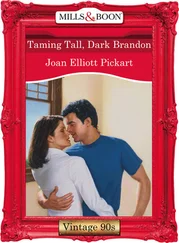She went in and opened her old e-mail account, the one she’d used when she lived in L.A. She could close the thing, cancel the account’s existence, rid the universe of it, but she hadn’t yet. That was too final. The number next to the word INBOX was in parenthesis and was very high. Maybe it was full. Dannie, looking at this e-mail page, felt a perfect mixture of curiosity and dread. She didn’t genuinely care who had gotten married or who else had gotten divorced or who was moving to New York or New Zealand or who was going back to school for interior design or who had breast cancer or whose parents had died or who wanted to be sponsored for a charity 10-K or who’d opened a Pan Asian restaurant in an up-and-coming neighborhood or who’d worked on a movie that was going to Sundance or who’d gone fishing in Mexico. And Dannie had especially low interest in hearing any news about her ex-husband — whether he was dating someone or was in jail or gay or what. Dannie pretended he no longer walked the earth, and it worked for her and she was going to keep pretending that.
She hit CHECK ALL and slid the cursor to the DELETE button and then she waited. She couldn’t tell what all was going through her mind. She stared straight into the screen and the next thing she knew her fingertip pressed down. She hadn’t given herself permission to do this. Her hand had taken it upon itself. It couldn’t have, though. It didn’t work that way. Dannie had made a choice. It was easy for her to do the rest of the pages. CHECK ALL, DELETE. Over and over. Dannie kept going until she had zero new messages. She guided the arrow up the screen and signed off, then set the computer aside and stood unsteadily, feeling worried but proud. She found some things to straighten, some things to dust, kept her arms and legs moving as long as she could. There would be nothing on TV. She didn’t feel like reading.
A vacant hour passed, lost. Maybe two hours. Dannie’s fertile time of the month had come and gone and she was not pregnant. Nothing had happened inside her, she could tell. Nothing in her body. In her mind, though, things were happening that should not have been. Sometimes Dannie could not elude the thought that Arn might not be real. He might not be a real person. He had no e-mail account and no phone number. Dannie and Arn never went out and so she never saw other people talk to him. He had clothes and some possessions, but Dannie could’ve planted that stuff. When your mind put itself to work on a delusion, it built in reasonable explanations for things, for why you might not be able to go out in public with a person and see other people talk to him. The person could work nights and be a homebody who was perfectly happy to spend his time only with you. There would be a reason why you couldn’t remember getting to know the person, why you could only remember not knowing him at all and then knowing him as you did now. Dannie could’ve dreamed Arn up and then loaded her fridge with bacon.
He closed at nine each evening and then, before he went home, spent a couple hours out behind the station drinking whisky on ice. There was a nice view from behind the station, and sometimes when he was too sober his house made him lonely. The moon was out and the desert floor seemed to glow. It was near midnight and still the silhouettes of the mountains that buffered Sandia could be seen. The gas station owner used less ice as the night wore on. The aching in his joints had subsided.
The gas station owner, earlier that day, had been reading a book about Oppenheimer and his gang, the atomic set, all the scientists who had been assembled from Europe. The gas station owner was jealous of people who got consumed with something, who could fall prey to an obsession of the mind, some intellectual entanglement that kept them up at night. The gas station owner was a practical person. He could think abstractly, but not in a productive way. He wished he could wander around in a stupor, his body lost but his mind focused, neglecting food and all hygiene. The gas station owner was currently drunk. That much was sure. If he was going to walk around in a stupor, it was going to be from Evan Williams.
The ice in the cooler was frozen together in one big chunk. The gas station owner arose and ambled into the back of the station and retrieved a butter knife. He sat and chopped at the ice until enough was broken off to make another drink — at this point, a few shards. Every night he told himself he needed an ice pick and every day he failed to endeavor to locate one.
The gas station owner had decided he wanted his nickname to be Shade Tree. These were the thoughts the whisky gave him. He didn’t want to be addressed as Shade Tree; he wanted it on his gravestone, and wanted to be buried under a big cottonwood. A suburb called Rio Rancho had sprung up north of Albuquerque and the gas station owner had seen in the paper that they were getting ready to dedicate a cemetery. It was not easy, in the desert, to find unbought gravesites under consequential trees. The gas station owner made a plan to call the place in the morning.
He heard a car pull in out front. It happened a couple times a night. The driver would get out and examine the pump, searching for a place to slide a credit card, then curse a bit and maybe spit, then continue on down the road because that was all that could be done. The gas station owner liked to think, in this day and age, that people still ran out of gas. He wanted to live in a world where that still happened. The gas station owner did not fool around with credit cards. This hurt his business, but not that much. He hadn’t heard a door slam, hadn’t heard the car out front pull off. In a minute he’d have to walk around and check it out, make sure some idiot kid wasn’t vandalizing the place, make sure it wasn’t a drunk who’d pulled off and passed out. The gas station owner slurped some whisky. It tasted like sugar-water. It tasted like stale tea. Clouds passed in front of the moon and the desert floor lost its luminescence. The gas station owner turned his head and someone was standing not ten feet from him, a tall man with thick hair and a baseball cap. The cap was sitting up on top of the hair. The gas station owner stood spryly, sloshing whisky on his sleeve. He faced the man, letting the man know he was alert, drunk but not too drunk.
“Help you, friend?”
The man looked over as if he’d just noticed the gas station owner, as if he’d sleepwalked out here. “I doubt it,” he said.
The gas station owner was not shaken. He was prepared to gently guide this man back to his vehicle or to fight him. The guy had on some kind of khaki outfit. There was a patch on his sleeve.
“You own this station?” he asked.
“Free and clear.”
“You Jay Fair?”
“People call me Mr . Fair when they’re standing on my land.”
“I’m here about the illegal shooting of some elk, Mr. Fair. Seems not everybody respects the seasons. Not everybody in the world follows the laws passed by their legislators. That may come as a shock to you.” The man still wasn’t looking at the gas station owner. He was looking off at the desert night. “You know anything enlightening about that topic?” he asked. “The topic of elk poaching?”
“I’ve never seen a rent-a-cop up close,” the gas station owner said. “I never go to the mall, so…”
The man wanted to smirk. He tapped the patch on his sleeve, which said FISH & GAME. The guy had something tied around his wrist, some type of animal call.
“Is that a whistle?” the gas station owner asked. “Do you have a whistle?”
The man had turned his head farther away. He was looking in the opposite direction of the gas station owner.
Читать дальше
